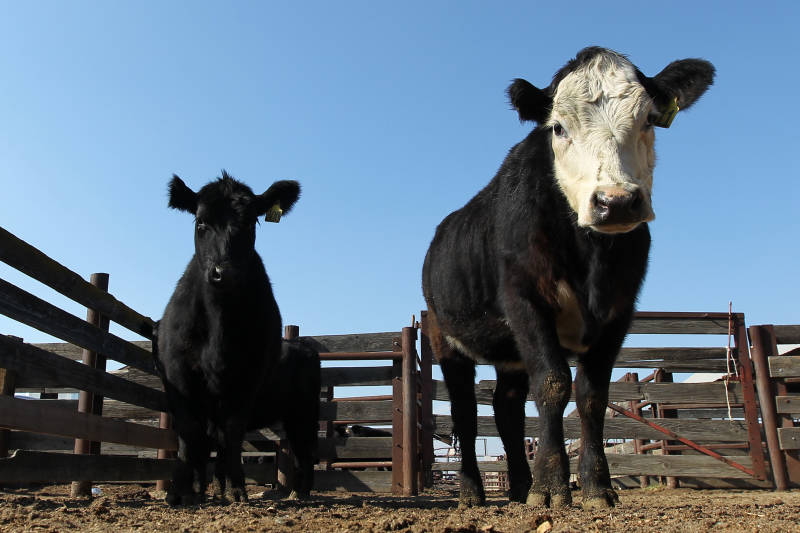Singleton entered the cattle industry at age 11 by milking cows twice a day to bring in extra cash for his family. By the time he was in high school, he started a business raising and renting out bulls, sometimes keeping the bulls in his truck outside the school while he attended classes.
Fast forward 20 years, and Singleton partnered with Amaral to start the Rancho Feeding Corp. slaughterhouse, which would eventually be found guilty of processing and distributing meat from unhealthy cows.
While they weren’t official co-owners of the slaughterhouse -- Singleton’s firm supplied the cows and distributed the meat and Amaral’s company managed the slaughterhouse’s operation -- the two worked closely and were good friends.
In early 2013, Singleton learned about the scheme to slip uninspected, usually unhealthy, cows through federal inspections. He allowed the process to continue and even paid an employee around $50 for each uninspected cow showing signs of eye cancer that Rancho distributed.
So why did Singleton get three months in prison while his business partner faces a year?
Prosecutors and the judge were lenient in Singleton’s sentencing due to his cooperation with federal investigators and limited involvement in the scheme. Singleton was also the first to plead guilty in the case.
The 78-year-old Amaral, by contrast, was the last to plead guilty and found to be the leader of the scheme. From 2012 to 2014, he instructed employees to process cattle that had been condemned by the Department of Agriculture and to slip in cattle displaying signs of eye cancer in place of healthy animals that had already been inspected and approved for slaughter. The scheme included cutting “USDA Condemned” stamps out of the "eye cow" carcasses once they were processed.
Singleton’s lawyers asked the judge to sentence their client to no prison time due to his advanced age and the unlikelihood that he will ever work again to commit another crime. Amaral is about the same age as Singleton.
Little believes that the judge issued prison time for these two offenders to make a statement about the severity of this unusual crime, rather than to prevent the two from committing a similar crime again.
“It's a national beacon, if you will, in an effort to ensure that the food safety laws and food inspection laws are taken seriously,” Little said. “It’s important to send this message.”
